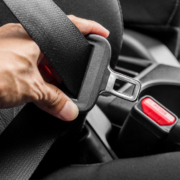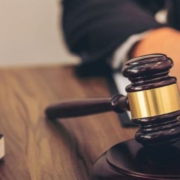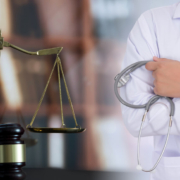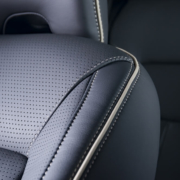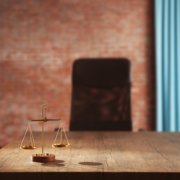What Does Maximum Medical Improvement Mean in a Car Crash Claim?
Many individuals who are injured have a long road to recovery. During the recovery process, various surgeries and other types of procedures may be required. In addition, personal injury victims could be looking at several months of physical therapy and other forms of rehabilitation. Unfortunately, some accident victims never end up making a full recovery. Instead, there comes a point where they reach what is known as maximum medical improvement (MMI).
If you or a loved one suffered a serious injury in Alabama, you should not face this situation alone. Insurance companies are notorious for doing whatever they can to reduce the amount of compensation that they have to pay out on behalf of their insureds, and you need a strong legal advocate in your corner who understands the laws of the state and who knows what it takes to hold those responsible for auto accidents fully accountable.
After you have received prompt medical attention for your injuries, your next call should be to M. Adam Jones & Associates to discuss your legal claim. Our legal team has in-depth experience representing clients who have been injured in car accidents and other personal injuries, and we have a successful track record with even the most complex cases.
Message us online or call our office today at 334-699-5599 to schedule a free, no-obligation consultation with one of our attorneys.
What Is Maximum Medical Improvement?
Maximum medical improvement (MMI) is a term used in the field of medicine to indicate that an individual’s condition has stabilized and is unlikely to improve with further medical treatment. It is often used to determine the extent of an individual’s injuries and their permanent level of impairment.
Once an individual has reached MMI, their treatment will typically focus on managing symptoms and preventing further deterioration, rather than trying to achieve a complete recovery. MMI is typically used in car crash claims to determine the amount of compensation that an individual may be entitled to receive.
How is Reaching MMI Different from Making a Full Recovery?
As stated earlier, reaching (MMI) means that an individual’s condition is not expected to improve any further with medical treatment. It is a point at which the individual’s condition has stabilized, and the effects of their injury or illness are unlikely to improve.
A full recovery, on the other hand, means that an individual has completely recovered from their injury or illness and has returned to their normal level of functioning. In other words, MMI is a medical determination whereas a full recovery is a functional determination.
Some examples of car crash injuries in which a victim may reach MMI but never make a full recovery include:
- Traumatic Brain Injuries (TBIs): TBIs vary widely in severity. Some are mild where the victim recovers within days or weeks while others result in long-term cognitive issues even after reaching MMI.
- Spinal Cord Injuries: The spinal column is one of the most important areas of the body, and when someone suffers a spinal cord injury, there is the potential for partial or total paralysis as well as long-term ongoing pain.
- Fractures/Broken Bones: Many individuals who suffer fractures make a full recovery, but for aging and elderly car crash victims, this might not always be the case. While they might heal to a certain point, there is a good chance that the fractured bone will remain weak and potentially deteriorate over time.
- Amputations/Loss of Limbs: The loss of a limb is a permanent injury in which the victim will never be the same. At best, they may receive a prosthetic replacement that will restore some functionality.
- Severe Burn Injuries: Car crashes that result in fires and explosions could cause those involved to suffer severe burns. A third-degree burn could cause permanent scarring and disfigurement in the affected areas of the body.
Who Decides When an Injury Victim Reaches Maximum Medical Improvement?
The determination of maximum medical improvement (MMI) is typically made by a physician or a team of physicians. They assess the individual’s condition and progress over time, taking into account factors such as medical tests, treatments, and the individual’s own symptoms and level of functioning. Then they use this information to make a determination of whether the individual’s condition has stabilized and is unlikely to improve further with medical treatment.
It is important to note that there is no set timeline with regard to the determination that an individual has reached MMI. It typically takes several months or longer, depending on the severity of the injuries, how the individual is responding to treatment, the continuing need for medical care, and other factors.
Once it has been determined that an injury victim has reached MMI, their attorney will have the information needed to negotiate the best possible settlement on the victim’s behalf. Prior to this determination, the insurance company may present a lowball settlement offer to try to make the case go away, but it is usually not advisable to accept this type of offer prematurely and without knowing the full extent of your injuries.
This is the type of situation in which the counsel of an experienced attorney is invaluable. Work closely with your attorney and rely heavily on their advice when it comes to a determination that you have reached MMI, settlement negotiations, and other important issues.
Injured in Alabama? Contact M. Adam Jones and Associates for Experienced Legal Help
If you or someone close to you got hurt in a car accident in Alabama, get in touch with M. Adam Jones & Associates right away to get started on your legal claim. We are committed to securing full and fair compensation on your behalf!
- Adam Jones,
Managing Partner
- Adam Jones & Associates, LLC
206 N. Lena St.
Dothan, AL 36303
Tel: 334-699-5599
Fax: 334-699-5588


